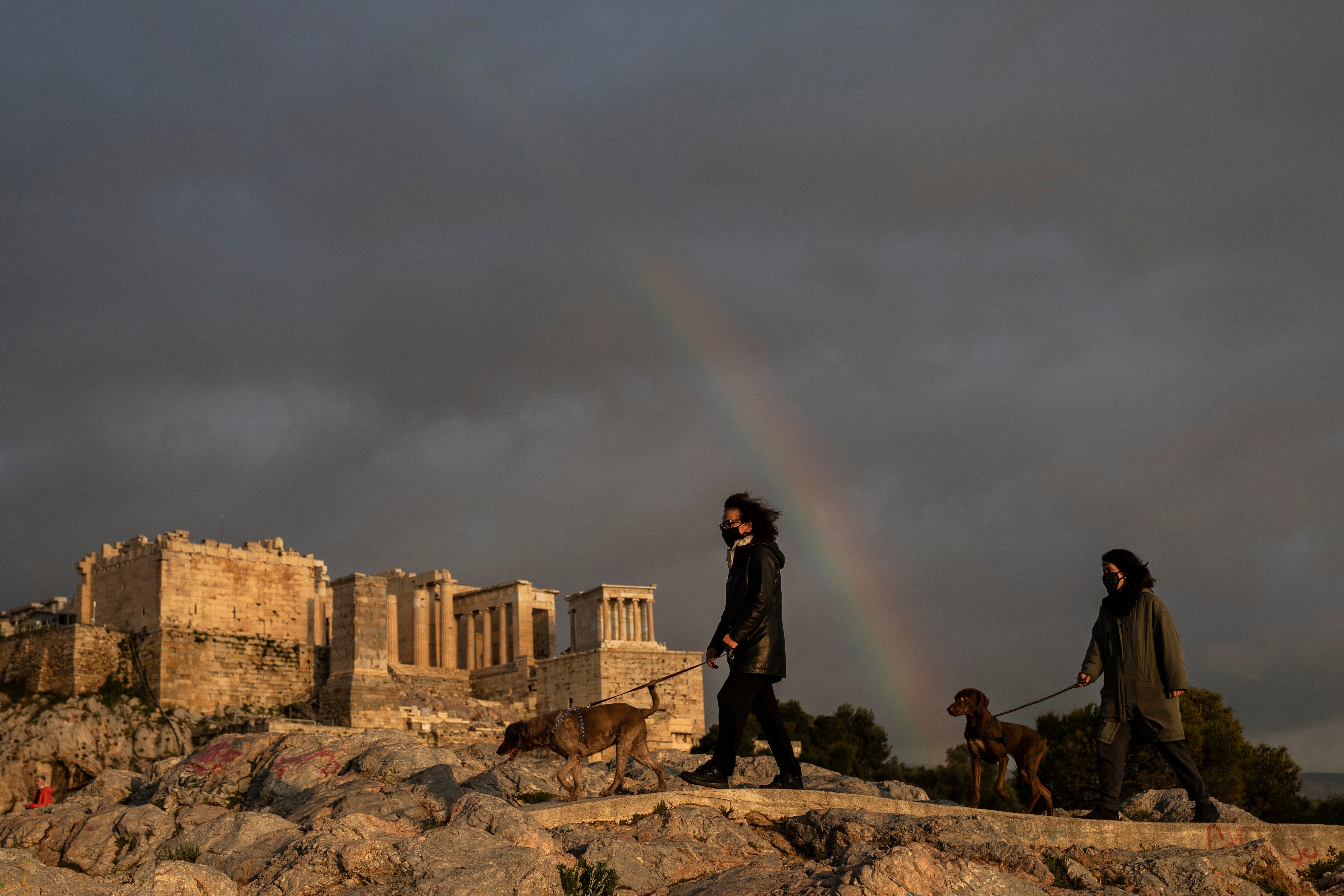Greece to allow pets into more than 120 archaeological sites
Greece's culture ministry says pets will soon be allowed into more than 120 archaeological sites across the country, although not in some of the top tourist draws such as the Acropolis in Athens

Your support helps us to tell the story
From reproductive rights to climate change to Big Tech, The Independent is on the ground when the story is developing. Whether it's investigating the financials of Elon Musk's pro-Trump PAC or producing our latest documentary, 'The A Word', which shines a light on the American women fighting for reproductive rights, we know how important it is to parse out the facts from the messaging.
At such a critical moment in US history, we need reporters on the ground. Your donation allows us to keep sending journalists to speak to both sides of the story.
The Independent is trusted by Americans across the entire political spectrum. And unlike many other quality news outlets, we choose not to lock Americans out of our reporting and analysis with paywalls. We believe quality journalism should be available to everyone, paid for by those who can afford it.
Your support makes all the difference.Pets will soon be allowed into more than 120 archaeological sites across Greece, the country’s Culture Ministry announced Thursday, although not in the Acropolis or some of the other top tourist draws.
The move, unanimously approved by the country’s powerful Central Archaeological Council, will relax current rules which only allow guide dogs for disabled visitors into archaeological sites. The ministry did not specify when the new regulations would be implemented.
The decision is “a first, but important, step toward harmonizing the framework of accessibility to monuments and archaeological sites with the standards of other European countries, where entry rules for pets already apply,” Culture Minister Lina Mendoni said in a ministry press release.
The council approved the entry of pets provided they are kept on a leash no more than one meter (3 feet) long, or carried by their owners in a pouch or a pet carrying case. Owners will also need to show their pet’s health certificate and carry the necessary accessories to pick up their animal’s droppings in order to be allowed entry, the ministry said. Larger dogs will have to be muzzled.
But some of the most popular archaeological sites, such as the Acropolis of Athens, Knossos in Crete, Ancient Olympia or Delphi, which tend to get very crowded, will still remain pet-free, as will ancient theaters, temples, graves and monuments with mosaic floors.
Cages will be installed at the entrances of more than 110 other archaeological sites, the ministry said, so owners can park their pets during their visit.
Tourism is one of Greece’s main industries, generating billions of euros in revenue each year.